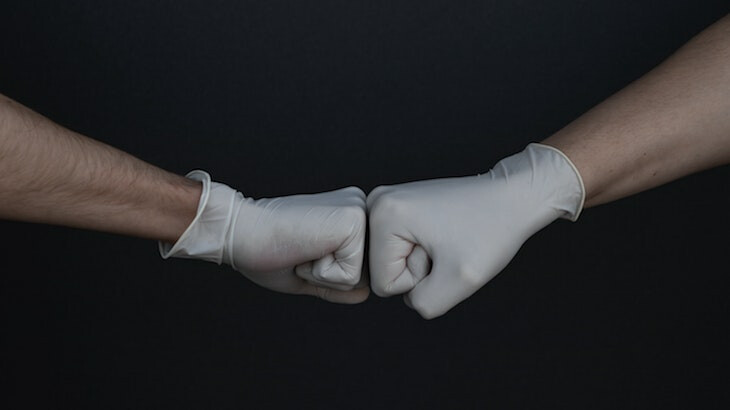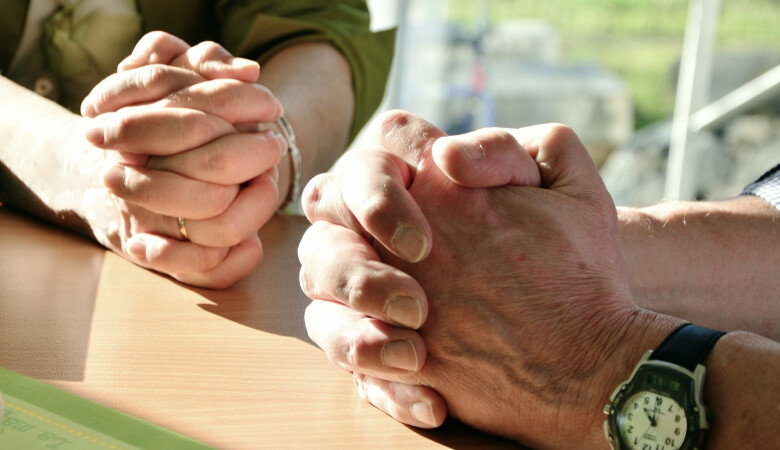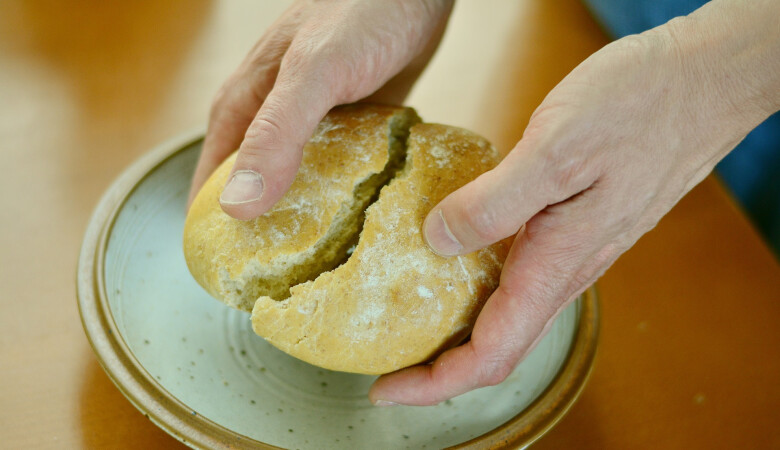Walk a Mile
May 17, 2020 | Sarah Stewart
Tomorrow, Governor Baker will announce his plan for the Commonwealth to begin to emerge from our COVID quarantine.
Now I have family in Michigan, and Michigan has been just about as sheltered in place and locked down as Massachusetts, if not a little bit more. And we are fortunate here that we haven't had the kind of armed protesters at the statehouse that they have had in Michigan. But Michigan has already released their phase reopening plan and I expect that ours is going to look something like that. I expect we're not going to all reopen and go back to the way we were living life before tomorrow. I think instead, we're going to have a slow reopening plan that has a lot of contingencies that's focused on the priorities of getting people back to work so that they can support their families, and the goal of having schoolchildren be able to resume school in the Fall. I expect it to include things like our hospitalizations and deaths from COVID continuing to go down. Do ICU’s have the capacity they need if people are very ill?
Are people following the advice to wear masks and respect social distancing? are people listening to the contact tracers? and if they find out they've been in close contact with somebody who got COVID, are they taking precautions like self-quarantine and getting a test? And does testing continue to increase in terms of availability? I think it's going to be a slow protracted process and probably just as difficult as the stay at home advisory that we've all been living under these past months. And it's going to ask a lot of us. It's not going to be easy, because some of us are sick of quarantine and really miss our friends. Some of us are desperate to go back to work. Some of us are terrified to go back out and be with other people. We're going to have to respect ourselves and respect each other in order to make this work.
We're going to need to act morally and not merely selfishly as we reopen. Our moral decisions will value our own wellbeing and the wellbeing of others equally. So, what are some options that we have for our behavior, not just in terms of this quarantine but all the time? How do we decide what to do and how to make the right decisions? Well let's actually start with self-interest, because self-interest is not always the enemy. In fact, it's a powerful force.
Think about public schools for instance. It's in my self-interest for my children to get a good education and go to a good school. So, then I'm interested in paying the taxes and supporting the policies that make a good education available for all children. Or pulling over for ambulances when you're driving down the street. I want to live in a society where, if I was ever in an ambulance, the cars would pull over to let me get to the hospital in a time of my own crisis. So, I pull over for ambulances, so that I help create the kind of a world our self-interest helps to support; good behavior from everybody.
But self-interest isn't enough. Think about just the act of grocery shopping, which has become so fraught for many of us in these past few months. In order for me to go grocery shopping, now that definitely is in my self-interest to have food for my family. But in order for that grocery shopping trip to work. I have to think about the interest of the grocery store workers, of the food supply chain of the farmers, of the people driving the delivery trucks, and also with people who can't go to the store and rely on local deliveries and the kindness of their friends and neighbors to get their food. So just thinking about my own self-interest, it's not enough because it doesn't cover enough different contingencies and different points of view. My self-interest of being able to have food, it relies on the wellbeing of all those people, all the way along the chain. So, my moral choices must support their wellbeing, as well as my own. One philosophical idea for moral decision making is to imagine I want to do something and I'm trying to decide if it's right. What would happen if everyone did that thing? How would that go? So, for some things, that's really clear, what's good and what's not. Say I want to plant a garden in my backyard, well, what if everybody planted the garden in their backyard? that would be okay, so gardening is fine. What if I want to ride my bicycle? if everybody rode their bicycle, that would be fine, it wouldn't hurt anything, riding a bicycle is a fine thing to do. But what about speeding on the mass pike? I mean, some people do this, but if everyone did it, if everyone drove as fast as they wanted on the highway, it would become undriveable and dangerous. And in fact, in this quarantine time, even though, driving is down by 50% on Massachusetts highways, fatalities on the highways have gone up as more people are disobeying traffic laws and speed limits. So, we can't all speed, and therefore, maybe it's not right for me to speed, since not everybody can do it. But this way of making moral decisions doesn't completely cover our current circumstance because right now, different people among us need to be able to do different things.
As we reopen, we need a world where immune compromised people can continue to stay socially distant and be supported at home, in keeping themselves safe. We need a world where these online ways of connecting continues, so that people aren't lonely and isolated in their homes. We need a world where workers can go to their jobs in order to support their families, if that's what they need. We need a world that respects business owners who are trying to bring a product to market and give jobs to the community. We need a world that supports healthcare workers who are out there on the frontlines meeting the immediate needs of people with COVID and people with other illnesses. We need a world that supports children who need an education, and their teachers who will need to be able to provide it, perhaps in person, or perhaps online, or perhaps a mix of both. We need a world that supports low income families as well as people with resources. All those people have different needs and need to be able to do different things, so we need a moral system that's complex enough to support everybody. The Golden Rule: do unto others as you would have them do unto you, kind of runs into the same problem. Because what I need might be different from what someone else needs. The one thing we can hold on to is that we all need respect. Respect others as you would have others respect you. So how can we reopen society, while respecting one another?
We can remember that metaphor of the fleet of ships from this morning's reading. We have to remember those three things. First of all, we have to avoid collision. We have to not hurt each other. Wearing masks is a part of that. It's not as much about protecting yourself as it is about protecting other people in case you had COVID and didn't know it. We have to keep our own ship in good working order, which means taking care of ourselves and our families. It means not taking our anger and anxiety out on other people but learning to manage them ourselves. And we have to get where we're going together.
Like the sheep in this morning’s story, who knew that all the sheep had to come home in order for the day to be a success. Our society is like a fleet that needs to just all arrive at the correct destination together. C.S. Lewis also uses the metaphor of an orchestra; that in order for the performance to be successful, it needs to all play the same piece. So, we must think of ourselves, and we must think of others, and we must think of the whole.
So, as we reopen, we will ask one another what our needs are and learn to respect those needs. We’ll wear our masks when we're out in order to protect other people from us. We’ll respect limits that are set by our leaders, and by the people we know and love. If their tolerance for risk and their limits are lower than ours, we will respect that in each other. And we'll be ready to hold the state's plan loosely and be prepared to change if circumstances warrant it.
There's one more piece of this moral decision making for us to consider as people of faith and that is compassion and love and responsibility for the other person. Martin Luther King famously turned the story of the Jericho Road on its head and said that the neighbor who stopped for the man taken by thieves by the side of the road didn't think to himself: “what will happen to me if I stop and help him?” He thought, “what will happen to him if I don't stop to help him?” And that's how we can think of our neighbors as people of faith. What will happen to them if I don't treat them with compassion and respect and help them as much as I can? The whole flock is important, but one sheep is also important. So, we can help the whole, and respect the needs of the individual. We can respect the limits set by government business and organizations, but each of us have a responsibility to care for one another. We can help our leaders do this. Encouraging the extension of unemployment support. Encouraging improved remote learning plans for schools, and a childcare plan that supports parents who work. Encouraging support for medical professionals and researchers and encouraging support of a robust democracy, so we can all participate in making vital choices. In the coming months, it will not be easy, the trauma of this pandemic will go on. But as some aspects of life re-open, we will get through the hard times and celebrate the good times together.
Take care of yourselves. Take care of your neighbor. We'll get where we're going together.
I love you all. AMEN.
Series Information

Even as we stay home, work in essential jobs, or navigate unemployment, we are all in this together. Justice is just us, working together. A worship theme on the mission and values of our faith during these hard times.


